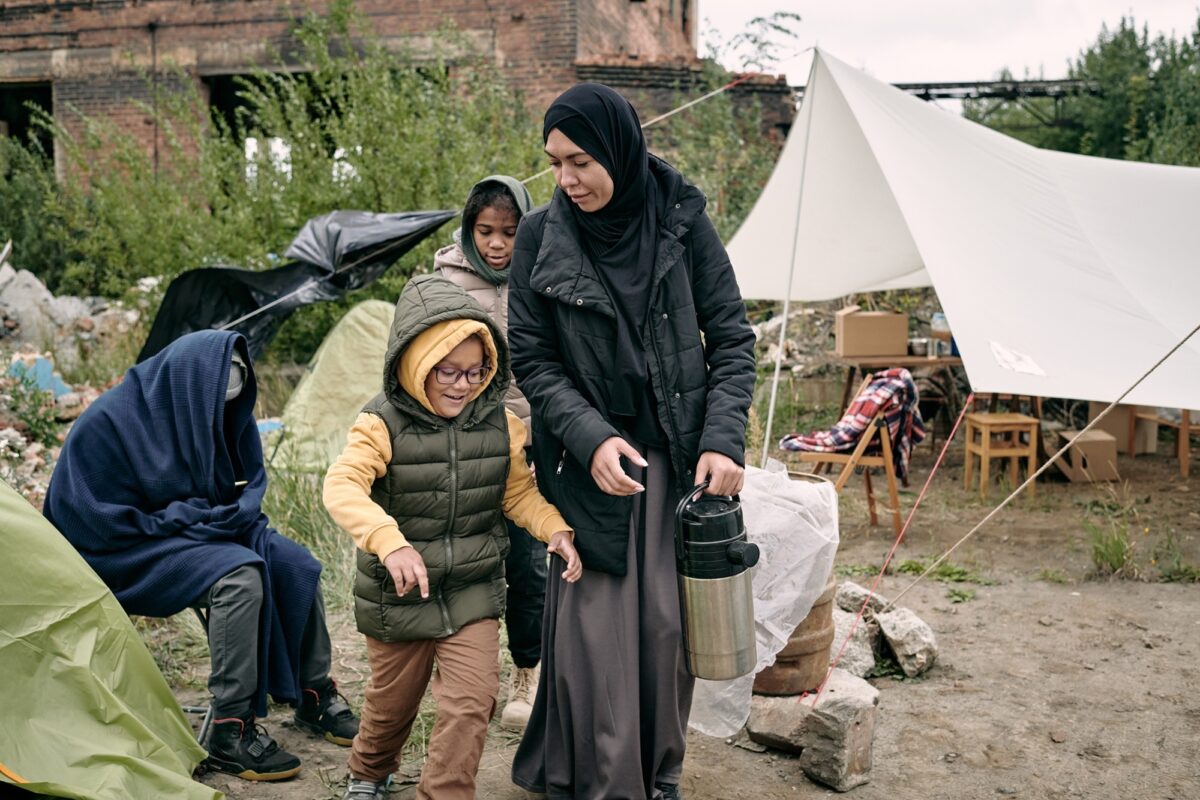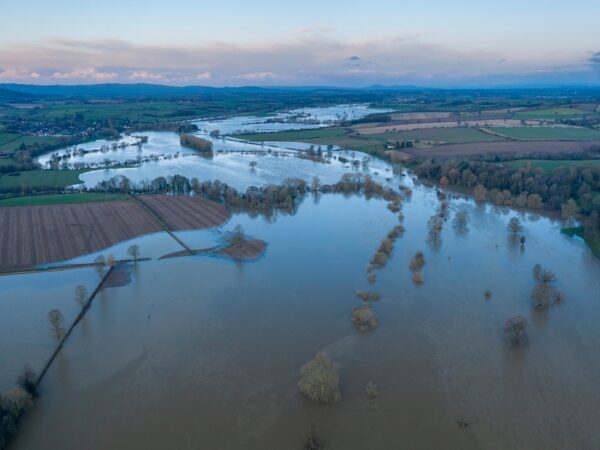
Knowledge of population distribution is critical
According to UNHCR figures 2 million people are displaced globally every month due to conflict, natural disasters, migration, development or urbanisation. Knowledge of population distribution is therefore critical for building infrastructure, distributing resources and monitoring the progress of sustainable development goals. Although censuses can provide this information, they are typically conducted every ten years with some countries having forgone the process for decades.
Several organisations have approached the problem of population estimation, for example WorldPop has been a forerunner in this field with population maps available in several countries. Facebook has also released a High Resolution Settlement Layer (settlement in the sense of whether people live or not in a certain region) which can be used to generate an aggregated population map at very high resolution using census data. Both these approaches, however, are census-dependent. This data can become outdated very quickly in developing nations due to migration and rapid demographic changes.
Census-independent population estimation
Census-independent population estimation approaches using alternative data sources such as satellite imagery have shown promise in providing frequent and reliable population estimates locally. These approaches, however, require significant human supervision, for example annotating buildings and access to various public datasets, deeming these approaches not easily reproducible.
SCIPE
Dr Sohan Seth and Dr Gary Watmough, through working with the Data for Children Collaborative with UNICEF, have developed a novel method called SCIPE: Sustainable census independent population estimation. This has advantages over other census-independent approaches by estimating population directly from satellite images which are not reliant on intermediate datasets such as building footprints or requiring smaller amounts of labelled/sampled input data. SCIPE has been developed in conjunction with UNICEF and aims to help provide governments and NGOs with crucial information on accurate high resolution localised population density data, population mobility analysis,and infrastructure mapping.
Faster and more tailored responses to humanitarian crises
This method potentially allows insights to be obtained in a faster and more reliable way, and at a much lower cost than conducting a census. The immediate goal for the project is to apply this model to other countries and regions for assessing its transferability, help humanitarian organisations enable faster and more tailored responses to humanitarian crises, ensure better planning of infrastructure development, leading to better oversight of ongoing projects.
Future collaboration
It is hoped that this iTPA funded project will also lay the foundation for future collaboration between Data for Children Collaborative with UNICEF at the University of Edinburgh and other organisations such as WorldPop and GRID3. Lastly, the aim is that further product improvements can be achieved by sharing knowledge, comparing modelling approaches and better understanding of how these outputs are utilised within decision-making organisations.
About the Authors
Dr Sohan Seth is the Lead Data Scientist at University of Edinburgh’s School of Informatics with a background in Machine Learning and Data Science. His research focuses primarily on building interpretable models for extracting information from scientific data.
Dr Gary Watmough is a Senior Lecturer in Land use and socioecological systems. His research, mostly based in South Asia and Africa, is mainly focused on linking household survey datasets with remotely sensed satellite imagery to explore ecosystem services, rural poverty and local and regional ecological conditions.
Alex Hutchison is Director of the Data for Children collaborative with UNICEF, part of the Edinburgh Futures Institute. She leads on this collaboration between UNICEF, the Scottish Government and the University of Edinburgh’s Data Driven Innovation Programme, focussed on using data and data science to improve the lives of children around the world. She draws on 10 years of experience of working in finance systems and in change roles, most recently delivering a programme of work to embed data management best practice for the finance function in RBS.
Related Links
Discover how we can help you develop innovative ideas and deliver solutions for People Places Planet



Header Image Credit: Getty Images